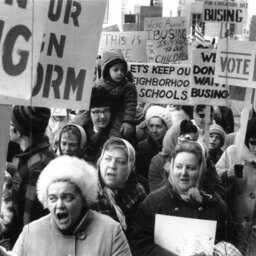More youths are becoming home caregivers. Daniela Castro-Martinez is one of them.
More youths are becoming home caregivers. Experts say they need more help and support.
Daniela Castro-Martinez remembers how dedicated and active her mother was before she got sick, giving her only child a lot of attention.
“Every weekend, she’d take me to tennis tournaments. Sometimes they were like an hour, two hours away. She would do that because she knew that I loved the sport,” Castro-Martinez said. “She did everything for me and never complained about it.”
That was before Sandra Martinez was diagnosed with amyotrophic lateral sclerosis, or ALS. The disease is progressive and affects nerve cells in the brain and the spinal cord.
Martinez lost her mobility around the time her daughter started high school. That's when the roles essentially reversed, and Castro-Martinez became one of her mother’s primary caregivers.
The Rochester Democrat and Chronicle Sound Lounge
Interviews, audio artefacts and podcasts from the newsroom of the Democrat and Chronicle based in Ro…Social links
Follow podcast
Recent clips

50 years ago Rochester tried an experiment with desegregation. It lasted less than 2 months.
22:32

Listen: Pittsford's Chris Lillis falls just short of second Olympic medal
03:31

Listen: Chris Lillis advances to men's aerials finals in quest for second Olympic medal
00:26
 The Rochester Democrat and Chronicle Sound Lounge
The Rochester Democrat and Chronicle Sound Lounge